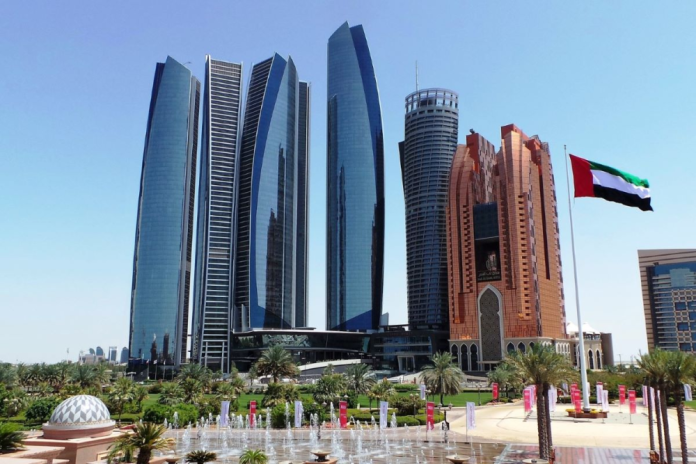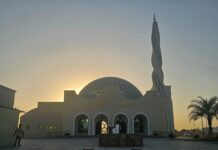What makes the UAE so attractive for investment? And what challenges does this economic landscape face as it evolves?
The United Arab Emirates continued Leading the Arab world in attracting foreign investment Direct, with over 1,216 projects and capital inflows of over $30 billion.
This impressive performance highlights the UAE’s appeal to global investors, but it also raises important questions: What makes the UAE so attractive to invest in? And what challenges does this economic landscape face as it evolves?
Understanding the attractiveness of investing in the UAE
The UAE has established itself as a major player in the global investment arena by creating a diversified economy supported by low taxes, stable exchange rates, and a strategic location. Over the course of a few decades, the emirates of Dubai and Abu Dhabi have transformed from small trading ports into major financial centers thanks to wise leadership and strategic economic policies.
This shift has led to major developments across multiple sectors. For example, Tourism industry, It attracts millions of visitors annually, supporting a strong hospitality sector.
The financial sector has also been equally successful, with financial centres such as the Dubai International Financial Centre and the Abu Dhabi Global Market contributing to the country’s position as one of the world’s leading financial centres.
The technology sector has also gained significant momentum thanks to futuristic initiatives such as Dubai Internet City and the Dubai Blockchain Strategy, which have not only created a thriving environment for tech startups but have also attracted global tech giants.
This diversified approach has boosted the economy and helped the country adapt to oil price volatility, but it also presents new challenges such as the need for constant innovation and facing competition from other emerging markets.
Key factors driving investment
There are several factors that contribute to the attractiveness of investment in the UAE, but there are also fundamental challenges that need to be addressed:
Strategic Location and Infrastructure: The country’s location at the crossroads of East and West provides a natural gateway to global markets. The country has capitalized on this location by investing heavily in world-class infrastructure, including airports, seaports, and major logistics hubs, which not only facilitate trade and tourism, but also support the UAE’s goal of becoming a major hub in global trade.
However, with other Gulf countries investing in infrastructure, maintaining this superiority will require constant upgrades and innovation.
Business-friendly policies
The UAE has implemented several business policies and reforms to attract foreign investment, most notably the introduction of the Golden Visa and allowing full foreign ownership of companies on the mainland.
While these measures have been key in attracting diverse international investors, neighboring countries are pursuing similar policies, which could challenge the country’s unique position. To maintain its competitive advantage, the UAE must be proactive in adapting and improving these policies in line with global economic trends and investor needs.
Economic diversification
The UAE’s strategy to diversify its economy away from oil has been central to its investment appeal. Sectors such as real estate, finance, tourism and technology are now well established, making the UAE economy more resilient. However, some areas such as real estate are prone to cyclical fluctuations, and the heavy focus on tourism and luxury markets could make the economy vulnerable to global market volatility. Ensuring balanced expansion across sectors while exploring and investing in new areas will be key to managing these challenges.
Innovation and Technological Advancement
The UAE has invested heavily in becoming a leader in technology and innovation, from developing tech hubs like Dubai Internet City to initiatives like the Dubai Blockchain Strategy.
These investments have not only attracted businesses, but have also positioned the UAE as an economy of the future. But the rapid pace of technological change requires continued investment in education, infrastructure, and cybersecurity to maintain its lead and avoid potential decline.
Regulatory Environment and Stability
The UAE offers a stable and secure environment for investors, with clear laws and regulations that protect investments. This stability is a major draw for investors looking for security in a volatile global market. However, maintaining this stability requires continuous improvements in governance and compliance with international standards, especially in areas such as data protection, privacy laws, and corporate governance.
Future outlook and new opportunities
Looking to the future, the UAE is not resting on its laurels, continuing to pave the way for sustainable investment through ambitious construction projects and the continued introduction of new technological developments.
Notable developments include the Santiago Calatrava-designed Burj Dubai, the Palm Jebel Ali development, and the Guggenheim Abu Dhabi, all designed to enhance the UAE’s luxury offerings, increase visitor numbers, and create new and lucrative opportunities for businesses in the hospitality and retail sectors.
Technically, the UAE is also leading the way by integrating AI into its economic fabric, improving investment processes and enhancing operational efficiency across sectors. For example, AI applications in Dubai’s public services and traffic management have improved operations and increased investor confidence.
However, to maintain this leadership in this area, the UAE must continue to invest in skills development and strengthen cybersecurity to protect sensitive data from growing global threats.
Balancing growth with caution
The UAE’s investment environment offers tremendous opportunities, but it is not without its challenges. The country has successfully positioned itself as a leader in attracting foreign investment through strategic initiatives and economic diversification. However, it must manage a range of risks to maintain its competitive edge.
A saturated real estate market and intense competition from neighboring Gulf states such as Saudi Arabia and Qatar, which are also consolidating their economic standing, pose potential challenges. The UAE needs to capitalize on its early mover advantage and continuous innovation to maintain its edge.
Despite these obstacles, the country remains an attractive option for investors, as it focuses on policy development and sectoral expansion.
By keeping abreast of these dynamics, investors can make informed decisions that align with their risk appetite and growth ambitions in this rapidly evolving market.



